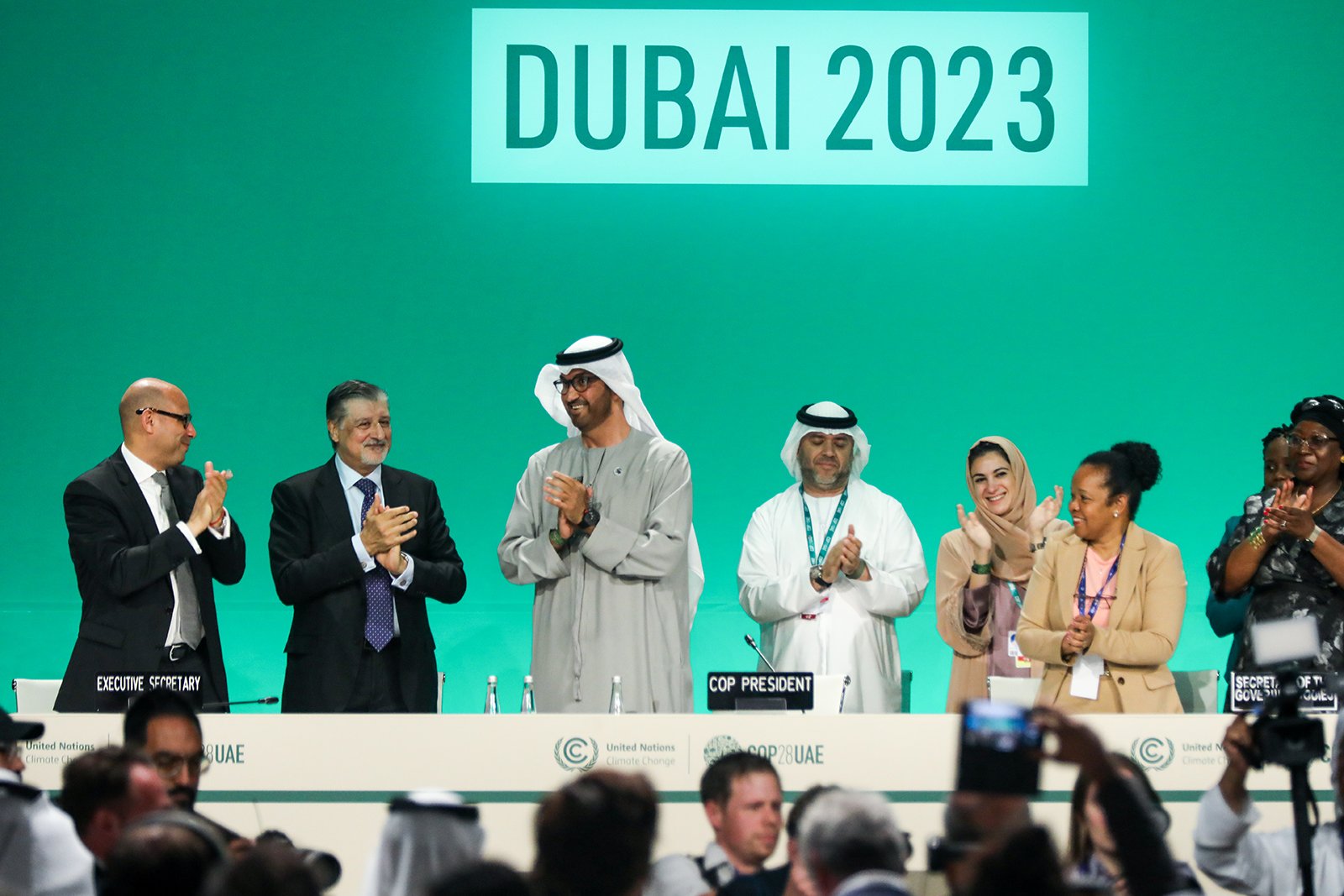
On behalf of the coalition government, Climate Change Minister Simon Watt signed New Zealand up to the final agreement of COP28, the latest worldwide response to the climate crisis.
So what did he sign up to? The media have headlined the inclusion of a statement that the transition to a carbon-free environment can include a role for fossil fuels, which seems to undermine the need for rapid decarbonisation.
But this is only one clause out of 196 and the other 195 are hard-hitting. Here are some of the contents.
Firstly, the document confirms there is a crisis, that we are falling far short of the Paris goal to keep global warming to 1.5°C, and that deep, rapid and sustained reductions in greenhouse gas (GHG) emissions are required in the next five years if we are to keep global warming within livable limits.
Secondly, it calls on all parties to triple renewable energy capacity and double the annual rate of energy efficiency improvements by 2030, to substantially reduce methane emissions by 2030, to reduce emissions from road transport including the development of zero- and low-emission vehicles, and to phase out inefficient fossil fuel subsidies.
Thirdly, it encourages all parties to come forward in their next national contributions documents (due in 2025 and covering the period up to 2035) with ambitious, economy-wide emission reduction targets, covering all greenhouse gases, sectors and categories, aligned with limiting global warming to 1.5°C, and taking into account the scientific evidence provided by the IPCC.
Fourthly, it urges all parties to include in their contributions document plans to attain sustainable and regenerative food production, provide access to safe and affordable potable water for all, and ensure the protection of inland water, mountain, marine and coastal ecosystems.
Fifthly, it notes that both adaptation and mitigation financing through both local and national budgets will need to increase manifold, and that governments, central banks, commercial banks, institutional investors and other financial actors will need to accelerate the ongoing establishment of new and innovative sources of finance, including taxation.
Sixthly, it calls on parties to meaningfully engage indigenous peoples and local communities in their climate policies and action. These go well beyond the current climate change policies of the coalition government. National’s pre-election policies were hardly very strong and they have been seriously weakened through the process of negotiating with Act New Zealand and New Zealand First. Both these partners are sceptical of the science of climate change.
Shane Jones of NZ First complains of climate "hysteria" and supports activities that both the IPCC and COP28 agree cannot continue if we are to successfully combat global warming. David Seymour considers that spending to address the impact of climate change is a waste of money.
How therefore will the government implement the undertakings it has signed up to in the COP28 agreement? Will Act and NZ First accept the actions the agreement requires, and will they accept the Cabinet policy of collective responsibility? Or will National renege on its COP 28 commitments in order to keep Act and NZ First in the coalition? Or will the coalition collapse?
It could have been an interesting game to watch, if the issue were not one on which depends the future of this country and all its inhabitants, not to mention its international reputation.
— John Drummond is an emeritus professor at the University of Otago’s School of Performing Arts.












